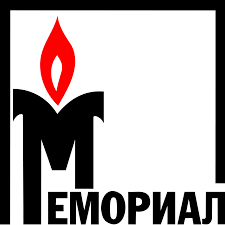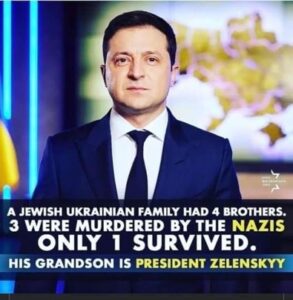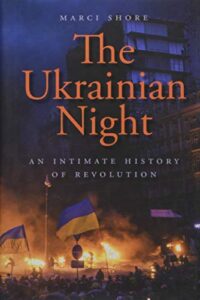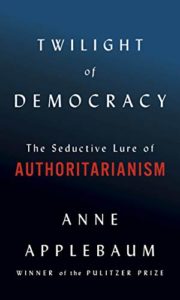Russian Foreign Minister Sergey Lavrov said on March 3, the West will “get over” its “hysteria” about Ukraine. I am afraid he might be right. And I am afraid of what that will mean for the rest of the world, says Kyiv-based journalist Veronika Melkozerova, the executive editor of the New Voice of Ukraine.
So maybe by saying “This is not our war,” the world’s leading democratic countries are simply showing that they are in denial about what will happen next. What if World War III has already started? she writes for The Atlantic:
 Perhaps it began in Georgia, Moldova, and Syria. Perhaps in the future, the invasion of February 24 won’t be seen as the start, but as a key turning point. It is obvious that Russia will not stop its crusade against democratic values and common sense in Ukraine. Russian propagandists have been talking about which country will be invaded next. Ukraine’s Defense Secretary Olexiy Danilov has said it might be Lithuania, a NATO member. Will NATO act only after Lithuania is invaded?
Perhaps it began in Georgia, Moldova, and Syria. Perhaps in the future, the invasion of February 24 won’t be seen as the start, but as a key turning point. It is obvious that Russia will not stop its crusade against democratic values and common sense in Ukraine. Russian propagandists have been talking about which country will be invaded next. Ukraine’s Defense Secretary Olexiy Danilov has said it might be Lithuania, a NATO member. Will NATO act only after Lithuania is invaded?
Much like in Afghanistan the Russian army is becoming bogged down and broken. The troops are demoralized and incompetent, says Ukraine expert and Journal of Democracy contributor Dr Taras Kuzio of the Henry Jackson Society (above).
In Georgia — where, the government says, 20,000 Russians have arrived since the start of the war — exiles have faced an intimidating environment, full of anti-Russian graffiti and hostile comments on social media, The Times reports:
 “We tried to explain that Russians are not Putin — we hate Putin, too,” said Leyla Nepesova, an activist from Memorial International, a Russian rights group recently shuttered by the Kremlin. Ms. Nepesova, 26, escaped to Georgia a week ago and has found herself tainted by association — sworn at in the street and shouted at by a taxi driver. “He told us, ‘You are Russians, you are occupiers,’” Ms. Nepesova said. “Russians are hated here — and I cannot blame them.”
“We tried to explain that Russians are not Putin — we hate Putin, too,” said Leyla Nepesova, an activist from Memorial International, a Russian rights group recently shuttered by the Kremlin. Ms. Nepesova, 26, escaped to Georgia a week ago and has found herself tainted by association — sworn at in the street and shouted at by a taxi driver. “He told us, ‘You are Russians, you are occupiers,’” Ms. Nepesova said. “Russians are hated here — and I cannot blame them.”
But it is a mistake to blame ordinary Russians for the actions of the country’s leaders, says a leading analyst.
After the end of the cold war, the west assumed Russia would follow the road taken by postwar Germany. But Russia’s behavior over the past decade resembles Germany during the period after the first world war, not the second, Ivan Krastev observes. Three decades ago many in the west naively believed that a democratic future was the only possible path for post-Soviet Russia. Now we are making a comparable mistake in assuming that a post-Putin Russia could not be anything but his Russia with another strongman ruler, he writes for The Financial Times:
While in the short term the west’s priority should be to provide support to Ukraine, in the medium and long term it needs a strategy on Russia that goes beyond military containment. We have shifted easily (and lazily) from complacency to moral outrage. We are shocked that Russians have allowed themselves to be taken in by Putin’s propaganda, forgetting that they are not the only ones capable of living a lie.
— Democracy Digest (@demdigest) March 14, 2022
In 2004, Putin summed up Russia’s post-Soviet history and his own worldview succinctly: “We demonstrated weakness, and the weak are beaten.” Clearly, he calculated that Ukrainians—and the wider democratic world—had weakened enough to be beaten, Thus far, it is Ukraine’s president, Volodymyr Zelensky, who is upending Putin’s logic, notes Ben Rhodes, former speechwriter and deputy national security adviser to Barack Obama:
 By standing up to a bully, Zelensky has stripped him of his capacity to intimidate. A younger man—communicating through selfie videos and Zoom, wearing a T-shirt instead of a suit, often surrounded by people instead of sitting at the end of a large table—Zelensky has come to encompass a populism not of cynicism and grievance but of idealism and community. In his fearlessness he resembles Navalny, who has taunted Putin from his prison cell and predicted that the war will be Putin’s downfall.
By standing up to a bully, Zelensky has stripped him of his capacity to intimidate. A younger man—communicating through selfie videos and Zoom, wearing a T-shirt instead of a suit, often surrounded by people instead of sitting at the end of a large table—Zelensky has come to encompass a populism not of cynicism and grievance but of idealism and community. In his fearlessness he resembles Navalny, who has taunted Putin from his prison cell and predicted that the war will be Putin’s downfall.
Out of this kind of righteous rage—shaking democracies from complacency, forcing citizens to discard the luxury of cynicism, rejecting the inevitability of autocracy—perhaps a new world can be born, Rhodes writes for The Atlantic. We have reached a hinge of history.
The reasons for Putin’s invasion of Ukraine are mostly found in Russia’s political culture and the personality of the leader, argues Sławomir Sierakowski of the German Council on Foreign Relations. In Russia, much depends on the leader, hardly anything on institutions. And when we speak of Russia’s political culture, we need to think about ideologies that have been formulated within Russia – a country where political manifestos still matter, he tells Irena Grudzińska Gross:
 The late Harvard historian Richard Pipes wrote that the Russian tradition reaches back to the Mongol conquest and stems from Russia’s territorial openness. Orthodox Christianity in the Russian, gnostic version, too, is an all-or-nothing religion – excessive respect for tradition combined with bloody revolutionary zeal. There is no independent social group like the nobility in Poland or the bourgeoisie in Western Europe.
The late Harvard historian Richard Pipes wrote that the Russian tradition reaches back to the Mongol conquest and stems from Russia’s territorial openness. Orthodox Christianity in the Russian, gnostic version, too, is an all-or-nothing religion – excessive respect for tradition combined with bloody revolutionary zeal. There is no independent social group like the nobility in Poland or the bourgeoisie in Western Europe.
Putin, meanwhile, is the one behaving like a Nazi. His “defense of Russians” rationale is taken straight from Hitler’s Sudeten crisis playbook, he says on Project Syndicate. RTWT
Ukraine. Unity, Defiance, Resistance
“Ukrainians are fighting for all of us,” says Yale University historian Marci Shore, the author of “The Ukrainian Night: An Intimate History of Revolution.” “I’m terrified for my friends,” she tells The Democracy Group podcast. “The Ukrainians will not give up… I’m desperately hopeful that as difficult as the odds are, they are going to prevail.”
The U.S. Senate Foreign Relations Committee hosts a hearing on Combatting Authoritarianism: U.S. Tools and Responses
- The Honorable Uzra Zeya
UNDER SECRETARY FOR CIVILIAN SECURITY, DEMOCRACY, AND HUMAN RIGHTSU.S. Department of State
- Ms. Jennifer Hall Godfrey
SENIOR BUREAU OFFICIAL FOR PUBLIC DIPLOMACY AND AFFAIRSU.S. Department of State
 Ms. Anne Applebaum
ATLANTIC MAGAZINE STAFF WRITER, SENIOR FELLOW AT THE SNF AGORA INSTITUTEJohns Hopkins University
Ms. Anne Applebaum
ATLANTIC MAGAZINE STAFF WRITER, SENIOR FELLOW AT THE SNF AGORA INSTITUTEJohns Hopkins University- Dr. Daniel Twining
PRESIDENTInternational Republican Institute
Recently returned from Kyiv, fmr @ThinkDemocracy fellow Sławomir Sierakowski @dgapev speaks w @IrenaGrudzinska about the cultural & ideological factors driving Russia’s war on Ukraine & its broader confrontation with the West. @ProSyn https://t.co/OgtbE9Z8XT
— Democracy Digest (@demdigest) March 14, 2022







